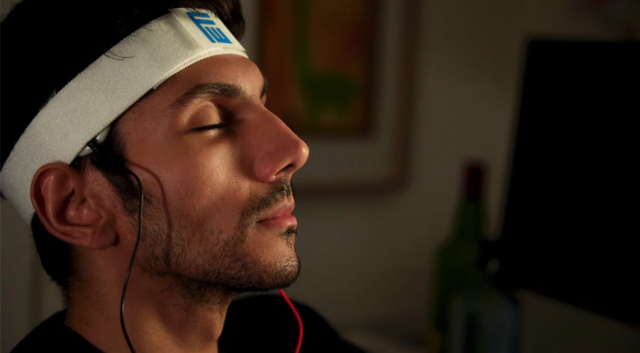
Seattle PD Is Testing a Brain Stimulation Device For Mental Wellness
The device is a part of a larger effort to promote wellness across the organization as well as “normalize access to self-care,” to Loren Atherly, SPD’s director of performance analytics and research. While SPD has historically sought to protect employees’ mental wellness through peer support, Atherly’s team has been looking into less traditional means that may also help reduce the effects of job-related stressors.
Enter the Fisher Wallace Stimulator, which New York-based Fisher Wallace Labs claims helps reduce symptoms in those with depression, anxiety, or insomnia.
Fisher Wallace says the headband stimulates the brain to produce feel-good chemicals like serotonin, which is often in short supply for those with depression and other mood disorders. It also emits alpha waves to help calm the user’s body. Fisher Wallace’s website the headband helps to lower cortisol (known as “the stress hormone”), but doesn’t specify how.

(Photo: Fisher Wallace Labs)
Up to 200 SPD employees will participate in the department’s CES pilot program, including both first responders and administrative staff. Half will receive (or already have received) sham devices for the first two weeks as a control. All participating employees will be instructed to use the device daily for four weeks, after which they can choose whether to continue treatment. The SPD has set up multiple ways to track the stimulator’s effectiveness: employees’ symptoms and other health data will be measured by virtual physician visits, self-reporting, and a wrist-worn ReadiBand. Fatigue Science, the Vancouver-based company that produces ReadiBand, claims the band can track the wearer’s fatigue, mental performance, and reaction times—data crucial to measuring both the stimulator’s success and individual employees’ fitness for what’s often a fast-paced, high-stakes job.
The SPD’s pilot program will be relatively short, meaning it won’t provide sufficient data to determine whether the Fisher Wallace Stimulator improves law enforcement employees’ mental wellness long-term. Still, those with depression, anxiety, and insomnia know even short-term relief can be valuable.
“This is our first approach in a suite of research projects that we’re calling practical wellness research,” Atherly told GeekWire. “We’re open and receptive to other projects that might help support people’s behavior and well-being.”
Now Read: